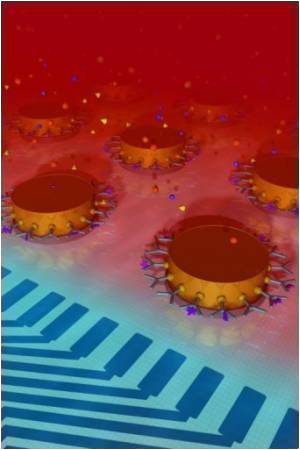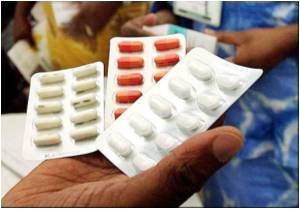A nanotechnology-based biosensor being developed by researchers may aid in early detection of both cancer cells and pathogens.

Kansas is a leading state in meat production and the poultry industry, he said. Any outbreak of pathogens in these industries causes huge financial losses and a lot of health risks. We want to prevent these outbreaks by detecting pathogens at an early stage.
Advertisement
For more than three and a half years, Syed's research has focused on developing nanotechnology-based biosensors for pathogen detection and cancer biomarker detection. He began the research as a doctoral student under the direction of Li, who has researched nanotechnology for 15 years.
Nanotechnology is a very exciting area, Li said. It really provides an opportunity to solve problems for health care and food safety. It can also be helpful for the environment and energy issues."
The project is a continuation of work that Li performed at the NASA Ames Research Center in California, where he spent seven years developing nanotechnology. While working in California, Li came up with the idea of developing a small chip to capture and detect pathogens.
Advertisement
A goal is to integrate this technology into a hand-held electronic device for pathogen detection so that we can use this device for in-line monitoring of water quality or food quality at industrial processing sites, Syed said. We have some preliminary results that indicate this technology is feasible, and I'm quite happy about that.
Advertisement
We're still working with the company and trying to eventually deliver this as a product to feed the market for water quality monitoring, Li said. You don't want people to drink contaminated water and get sick before you can do something. This research can be very helpful in the future as it can be applied in the very early stages before an outbreak spreads.
Nanotechnology is a diverse field, and includes such biosensor devices that we can develop in this lab at the university, he said. As long as we look for those opportunities, we can create something that is useful for Kansas and for people living here.
Source-Newswise














